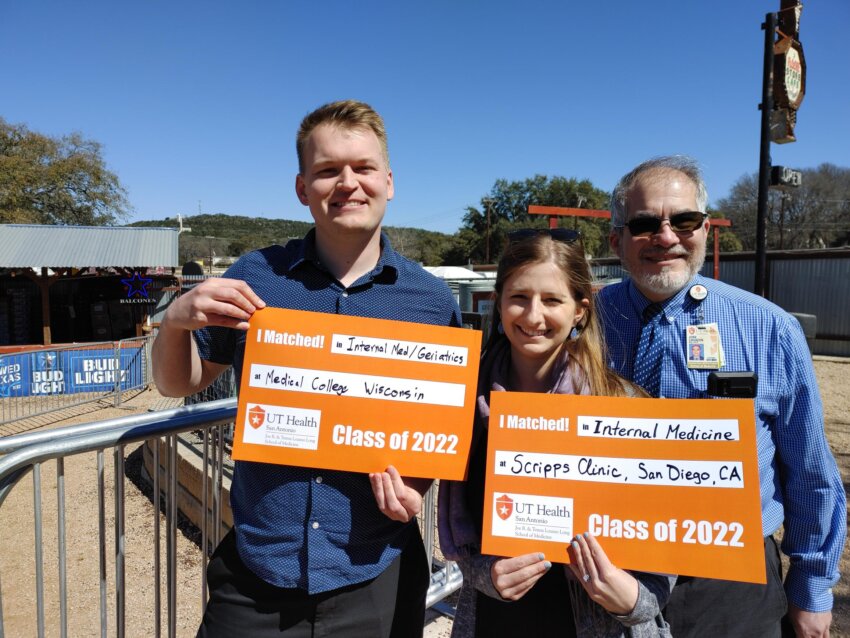Eric Baeuerle, already the holder of a Doctor of Philosophy (PhD) degree, has another large milestone coming May 21. That’s the day he will receive his Doctor of Medicine (MD) degree from the Long School of Medicine at the school’s 2022 commencement ceremony in the Alamodome.
Dr. Baeuerle was one of the medical students in attendance at Match Day festivities March 18. His envelope revealed that he matched into the internal medicine-geriatrics residency program at the Medical College of Wisconsin.
Dr. Baeuerle is in the South Texas Medical Scientist Training Program that enables outstanding and ambitious students at UT Health San Antonio to complete both MD and PhD degrees. These are physician scientists.
“It’s a really exciting time,” Dr. Baeuerle said at the Match Day event. “In graduate school I was able to develop my interest in geriatrics and aging research, and [medical residency] is what I’ve been looking for to take my career to the next step.”
The laboratory of Nicolas Musi, MD, professor of medicine and director of the Sam and Ann Barshop Institute for Longevity and Aging Studies, hosted Dr. Baeuerle’s PhD research.
“We’ve been doing a lot of clinically focused research looking at the effects of the gut microbiome on conditions such as diabetes and inflammation in the human body,” Dr. Baeuerle said. “My primary project assessed whether we could give pharmaceuticals or nutraceuticals to individuals and if that affected their response to glucose handling. Glucose handling is a key parameter that we can measure in early insulin resistance that may lead to diabetes.”
He plans to continue his research in diabetes and aging because of the interplay between the two.
Translating research into clinical practice is the guiding force of MD/PhD physician scientists. “We work in the lab to be able to take [what we discover] and bring it into the clinical setting,” Dr. Baeuerle said.
He is thankful for those who guided him during his studies.
“Working with Dr. Musi has been a real pleasure,” Dr. Baeuerle said. “He’s been a great mentor. He has always given me the leeway and the guidance to perform research experiments. Other faculty, Dr. Ralph DeFronzo, Dr. Sara Espinoza and Dr. Carolina Solis-Herrera, have all been great mentors in their own way to really help me become the researcher that I am.”
MD-PhD students begin by completing two years in the Long School of Medicine and then do their PhD doctoral training. The dual-degree program culminates with the third and fourth years of medical school, followed by matching to a residency program.
Watch the excitement here, and read these other Match Day 2022 stories:
57% of matching medical students to remain in Texas for residency, and 22% in San Antonio
Match Day: Anticipation, fulfilled goals and the call to serve


